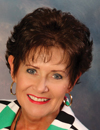
Boardmanship for Charity: Part Five
By Betsy Barbieux, CAM, CFCAM / Published January 2017
Editor’s Note: Boardmanship for Charity, Part One, was published in the June 2016 issue; Part Two was published in the August 2016 issue; Part Three was published in the October 2016 issue; and Part Four was published in the December 2016 issue.
Board members and service volunteers who are in the higher level of emotional development will be your most productive volunteers, and they are most likely to have the right attitude—a positive one! There are three basic levels of emotional development through which we are supposed to pass as we mature: Dependent, Independent, and Interdependent. It is possible to be 60 years old chronologically, but only 18 months emotionally. Those stages can be identified as follows:
The “Me, Me, Me” Stage
In the Dependent stage, an individual is focused on “ME.” “Feed me, clothe me, make me comfortable, make me happy”; me, me, me. This emotional stage is appropriate for newborns through childhood and early adolescence. Babies cannot do anything for themselves, and adults should provide all their needs.
However, it is not appropriate for an adult to be focused on “ME.” Yet, it is easy to observe people who complain, “They won’t bend the rules for me,” “No one invited me to eat with them,” “I don’t like where I have to park,” “People aren’t nice to me,” etc. This is not a team player and will likely not run for a board position or become a volunteer. This type of person is so self-absorbed that contributing time to a cause is foreign to them. If they haven’t “grown up” emotionally by the time they are 60 years old, they probably never will. They are, and will most likely remain, very draining people (VDPs), and probably need professional help to move out of this stage.
The “I Know It All” Stage
We start moving into the Independent stage at about two years old when we learn the word “NO.” This stage is characterized by “I” and is with us through the teen years. “I can do it (get dressed, tie my shoes, cross the street) myself,” “I can choose my own friends,” “I don’t like being told what to do,” “I know it all,” etc. The focus is on their strengths, which they brag about to everyone. Because this stage is basically insecure, they are unable to admit any weakness or lack of knowledge. However, they will gladly focus on your weaknesses. If you don’t know what that means, just observe your grandchildren in middle school. They are awful to each other.
As an adult, a person in this stage will be able to see what is wrong with everyone else, but not themselves. They would prefer to straighten out those around them rather than take responsibility for their own actions and emotions. There’s is a “me versus them” attitude; they are not usually team players. The reasons for leaving their last job or resigning from their last volunteer position will sound like this: “I told them what to do and how to run the place, but they would not listen to me.”
Unfortunately, this category has more adults in it than either of the other two. More than likely, your board and group of service volunteers will have several members who have the “me versus them” attitude; who think they know it all. They believe no one else has
experienced what they have during their lifetime. They do not have a very teachable spirit, but they can be very productive. This type works better alone.
The “Three Heads are Better Than One” Stage
In our early 20s, we are supposed to move into the Interdependent stage. That stage is characterized by a “WE” attitude. In this stage, we are able to objectively assess our strengths and weaknesses, and we are not afraid to acknowledge the strengths of others.
An interdependent director or service volunteer will say, “You have strengths in areas I don’t, and I have strengths in areas you don’t. Why can’t we put our strengths together and make a stronger whole?” The interdependent volunteer understands we are all individuals with specific abilities. The volunteer in this stage has learned that no one can know or do everything, but everyone can do something. By working synergistically, as a team, everyone wins. A great volunteer is emotionally mature—interdependent.
By putting together a board and group of service volunteers of interdependent people, you have a complete team that is capable of fulfilling your organization’s goals.
Betsy Barbieux, CAM, CFCAM
Florida CAM Schools
Betsy Barbieux, CAM, CFCAM, guides managers, board members, and service providers in handling daily operations of their communities while at the same time dealing with different communication styles, difficult personalities, and conflict. Effective communication and efficient management are her goals. For more than 15 years, Barbieux has educated thousands of managers, directors, and service providers. She is your trainer for life! Barbieux is the author of Boardmanship, a columnist in the Florida Community Association Journal, and a member of the Regulatory Council for Community Association Managers. For more information, contact Betsy@FloridaCAMSchools.com, (352) 326-8365, or www.FloridaCAMSchools.com.



